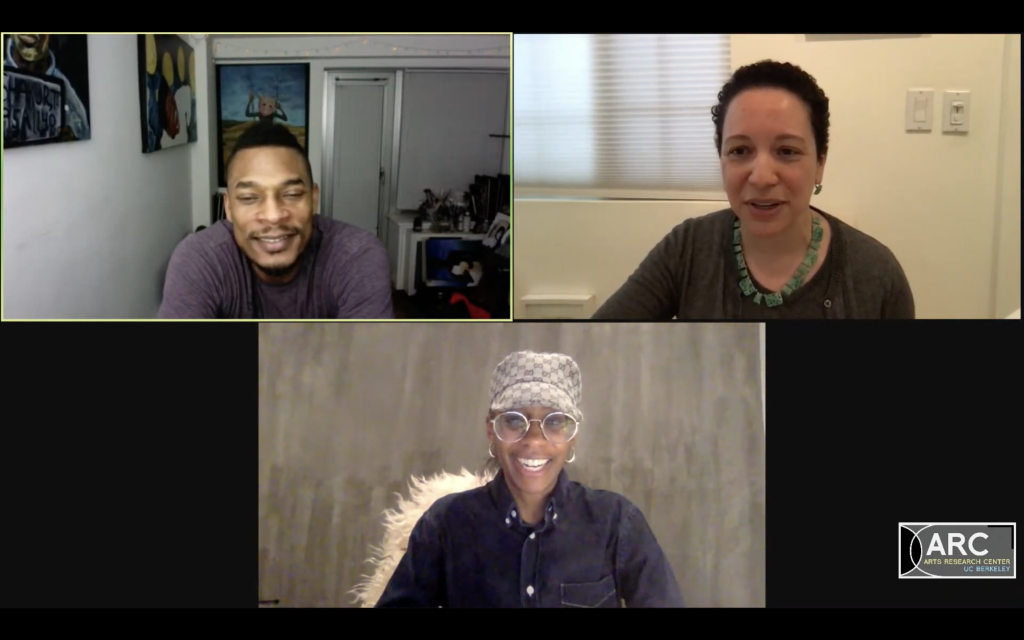Terrance Hayes and Simone White in conversation with Chiyuma Elliott
By: Menat Allah El Attma, April 12, 2021
“What would I do if this was a moment
where somebody cared?”

Dispelling how it is consumed in the market and media, art created by the Black community sets itself forth into view for that community first. That is to say, Blackness is not an end point (and therefore, I am) but a starting one (because I am). “What would I do?” Terrance Hayes prompts. This is important, for it dares to position Black people as authors of their story. And what happens then? A renaissance, a rebirth—which occurs in twofold: by first, preparing the surgical table and second, presenting the womb. Art lays a ground for a birthing effect and serves as a point of reference or return (like a mother). This effect is philosophical/intellectual, emotional, social, sexual, literary, musical, et. which extend as limbs to bodies and senses. Or what Chiyuma Elliott names, “vectors, interacting outside the world of the poem and becomes part of it too.”
Art is always a child of its time. And poetry is no exception.
“No one arrives with the intention to suffocate…”
…reads Simone White. “Pain expands the time; pain has an element of [ _____ ].” Poets and darling friends Terrance Hayes and Simone White speak on sense as an irrepressible metaphor; one that, if attempted to be fixed into language, can quickly tumble into negations. We parent, often in disparate and ad hoc ways, our senses. But they invariably move, unstill like a child. Perhaps this is why poetry, as White explains, is “pointed to as a problem solver” because a child’s sensitivity becomes first line of defense against an authority body outside of their own. Not only do these senses tend to indicate a world beyond themselves, but this movement beyond their own boundaries—a movement of boundary itself—reveals to be central to what the senses ‘are’. “My pulse is the best universe,” Hayes affirms. “I’m not in any rush to resolve it. Why would I be? So, I just take my time, a year, two years. I don’t mind not knowing yet.”
This quarantine, poets and non-poets alike have had to understand loss and luck in entirely new ways. “Is there anything precedent for us?” Hayes troubles. “Just allow your shock to be shameless.” Remember: “You can break down later. There’s no expiration date on your response even if in real time it looks like you’re still on your feet.”
Parting gifts from
T. Hayes: Write your day in one long, lyrical, ungrammatical sentence.
S. White: Listen to “Lamb Truck”, Tadoe ft. Chief Keef.
The full recording of the event is available for viewing on our YouTube channel, here.
Menat Allah El Attma is an Egyptian Muslim woman, educator, writer, and visual artist. Menat graduated from UC Berkeley with a BA in English literature and is pursuing her teaching credential. She is a logophile and linguaphile, working to affect a similar love for words/languages in her students through the practice and art of storytelling. She believes art is in the telling of the story as much as the story itself.
